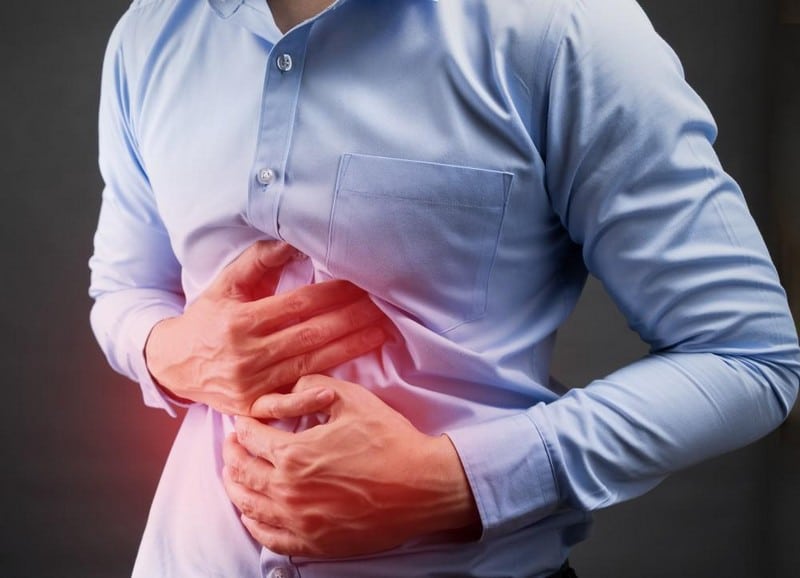Dyspepsia

Indigestion, or dyspepsia, refers to the pain or discomfort that happens in your upper abdomen, usually after drinking or eating. It’s a common issue, affecting nearly thirty percent of the global population. In the majority of instances, it can pass with no more than a few lifestyle adjustments. However, in cases where its symptoms are frequent and severe, medications may be recommended by a healthcare provider.
Often, dyspepsia is diagnosed if you have discomfort or burning sensations related to your digestive system, feel uncharacteristically bloated, or get full too fast. Treatments for the condition vary based on severity and cause. Usually, changing medications or addressing the underlying condition can reduce dyspepsia symptoms. Some lifestyle changes that can help with mild and occasional symptoms are limiting or avoiding consuming foods that trigger the disease, drinking water over soda, eating small meals, maintaining a healthy and moderate weight, and quitting smoking.
On the other hand, those with a higher frequency or severity of symptoms may need medication to reduce the occurrence of dyspepsia. Antacids, H-2-receptor antagonists, PPIs, prokinetics, antibiotics, and antidepressants may be prescribed to relieve its symptoms, if not keep them manageable.










